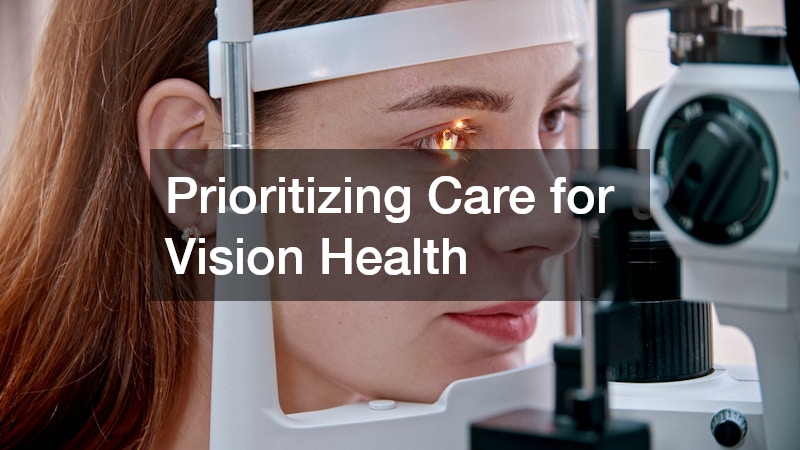Essential Guide to Choosing the Right Health Services for Every Stage of Life
In today’s fast-paced world, managing health effectively has become increasingly important for preserving quality of life. While the traditional route of seeking medical care is often the norm, there are now numerous options available for both preventive and holistic health management. Understanding the range of choices can empower individuals to take proactive steps toward maintaining their well-being. The landscape of modern care encompasses a wide array of services that address not only chronic conditions but also routine health maintenance. In this article, we will explore diverse solutions that cater to different needs, ultimately leading to better health outcomes.

Evaluating Options for Workplace Coverage
Employee benefits providers are essential intermediaries in enhancing the overall health of your workforce. These providers offer a range of health plans that typically include medical, dental, and vision insurance, as well as wellness programs that may assist in mental health and preventive care. Choosing the right employee benefits provider is crucial, as they can significantly influence workplace culture by promoting a healthy lifestyle among employees.
Companies should consider the specific needs of their team when evaluating options for workplace coverage. By integrating services such as physical therapy, chiropractic care, or wellness initiatives, businesses can address prevalent workplace injuries and general health concerns. Furthermore, comprehensive coverage related to preventive care helps in ensuring that employees feel valued and supported in their health and wellness journeys.
Overall, investing in robust employee benefits through a quality provider leads to improved job satisfaction and productivity. Additionally, enhancing employees’ access to health services creates a workplace environment that encourages ongoing health management. Aligning company objectives with the right employee benefits provider ultimately yields long-term benefits and nurtures a culture of health and well-being in the workplace.
Exploring Options for Managing Hormonal Health
Hormonal health plays a significant role in an individual’s overall well-being, impacting everything from mood to energy levels. Hormone replacement therapy (HRT) is a viable option for those experiencing hormonal imbalances, making it essential for individuals to understand their choices. By consulting healthcare providers, patients can access personalized hormone therapies that alleviate symptoms related to menopause or other endocrine disorders.
Individuals considering HRT should weigh the benefits and risks in collaboration with their healthcare provider. Treatment may not only provide relief from discomfort but also improve quality of life, allowing individuals to achieve their health and wellness goals. For many, hormone management is a pivotal component of a comprehensive health plan, helping them thrive in their day-to-day lives.
Additionally, exploring various lifestyle options—such as fitness regimens, nutrition, and mental well-being—can enhance the effectiveness of HRT. Adopting a holistic approach to hormonal health also includes regular check-ups with health professionals who can tailor strategies according to individual needs. By prioritizing hormonal balance, individuals position themselves for long-term health benefits that resonate across all facets of life.
Considering Preventive Care for Immune Support
Preventive care is a fundamental aspect of maintaining immune health, especially during flu season. IV therapy for cold and flu is a cutting-edge treatment that hydrates the body and delivers essential nutrients directly into the bloodstream, bolstering the immune system. For many, intravenous therapy has become a reliable tool to combat seasonal illnesses and support overall health.
By choosing preventive care options, individuals can significantly reduce their risk of severe illnesses and infections. This includes routine vaccinations, healthy lifestyle choices, and nutritional interventions that strengthen immune response. Proactive measures, when paired with treatments like IV therapy, can bolster health defenses and lead to improved wellness.
Moreover, preventive care extends beyond immediate health solutions; it emphasizes the importance of regular health screenings and consultations with healthcare professionals. This ongoing dialogue allows individuals to stay informed about their health status while prioritizing preventive measures that support their unique immune health needs. Ultimately, investing in preventive care fosters a culture of health awareness that extends to communities at large.

Prioritizing Care for Vision Health
Vision health is another crucial component of overall wellness that often goes overlooked. Regular check-ups with eye care services ensure that potential issues are detected and addressed early on, promoting long-term eye health. These services typically include comprehensive eye exams, corrective treatments, and education on maintaining optimal eye health.
The significance of vision health cannot be understated, especially in today’s digital world, where screen time is at an all-time high. Proactive eye care helps in preventing conditions such as digital eye strain, cataracts, and macular degeneration. Implementing preventive measures like blue light filtering glasses and regular eye check-ups can enhance overall comfort and function when engaging in daily activities.
Moreover, eye care services often intersect with other health conditions, illustrating the interconnectedness of health systems. For example, conditions like diabetes can severely impact vision, making collaboration between eye care professionals and primary health providers essential. Prioritizing vision health is ultimately a step towards enhancing one’s overall quality of life and ensuring a brighter future.
Preparing for Medical Emergencies
Medical emergencies can arise unexpectedly, making preparation paramount for effective response and recovery. Emergency room services provide critical care and intervention during health crises, underscoring the importance of understanding when to seek immediate assistance. Being aware of the signs and symptoms that require emergency care can make a significant difference in health outcomes.
It is beneficial for individuals to familiarize themselves with local emergency services and healthcare facilities. Knowing the locations and services offered by these providers allows for quick access in times of distress. Furthermore, educating oneself about personal health concerns and a history of conditions can guide emergency personnel in delivering timely and effective care.
Additionally, having a well-prepared emergency kit and a plan in place enhances readiness for unforeseen incidents. Outlining procedures for how to respond during various health emergencies fosters confidence and awareness among family members. Ultimately, being proactive about emergency preparedness not only ensures quicker recovery but also promotes peace of mind in times of crisis.
Maintaining Oral Health Across the Lifespan
Oral health is a fundamental aspect that impacts overall wellness across an individual’s lifespan. Regular dental services are essential for maintaining healthy teeth and gums, which play a crucial role in overall health. Scheduled check-ups, cleanings, and necessary treatments contribute significantly to preventing serious dental issues and promote good oral hygiene practices.
Research has shown that poor oral health can lead to chronic illnesses such as heart disease and diabetes, emphasizing the need for preventive dental care. By prioritizing dental visits and adhering to oral health routines, individuals can safeguard against conditions that may affect their health beyond the mouth. Moreover, educating patients on proper oral hygiene can foster healthy habits that are sustained throughout their lives.
As individuals age, the need for specialized dental care often increases due to changing health needs. It is vital to adapt dental services to cater to seniors, addressing unique challenges like dry mouth or gum disease. Building a rapport with dental professionals ensures that individuals are equipped with the knowledge and resources necessary for maintaining oral health no matter their age.

Supporting Spinal and Musculoskeletal Wellness
Spinal and musculoskeletal health is fundamental to maintaining mobility and quality of life. Chiropractic care offers innovative treatments that help manage pain and enhance physical function throughout various stages of life. By addressing issues related to alignment and posture, chiropractic care plays a vital role in both preventive health and recovery.
Chronic pain conditions and injuries can significantly hinder one’s ability to perform daily tasks, highlighting the importance of seeking appropriate treatment. Chiropractors provide tailored interventions designed to alleviate discomfort and promote healing. In addition, chiropractic care focuses on fostering overall wellness through education on body mechanics and lifestyle strategies, encouraging long-term health benefits.
For many, integrating chiropractic services into their health regimen leads to sustained improvement in physical well-being. This collaborative approach may involve coordination with physical therapy, where individualized rehabilitation programs complement chiropractic adjustments. Together, these services empower individuals to take control of their health journey, building strength and resilience against future injuries.
Designing Safe and Effective Paths to Healthy Weight
Achieving and maintaining a healthy weight is a key factor in overall health and wellness. A weight loss program designed by qualified professionals can provide individuals with the tools and resources necessary for successful and sustainable weight management. Tailored programs that encompass nutritional guidance, physical activity, and psychological support set individuals on a path towards healthier living.
The success of weight loss programs lies in their ability to adapt to the unique needs and goals of each person. Health professionals gather detailed assessments to create personalized plans that account for lifestyle, preferences, and ongoing challenges. A focus on gradual, consistent progress tends to yield better long-term results than more drastic weight-loss methods.
Additionally, incorporating education regarding portions, food choices, and exercise promotes sustainable habits. This supportive environment encourages accountability and motivates participants to celebrate small victories along their health journey. Ultimately, a well-structured weight loss program not only helps individuals achieve their goals but also enhances overall well-being and self-image.
Building Strength and Recovery Plans After Injury
Recovering from an injury requires a well-structured approach that focuses on restoring functionality and strength. Physical therapy serves a critical role in rehabilitation, enabling individuals to regain mobility and enhance physical performance. A personalized physical therapy program is designed to address specific injuries and recovery needs, ensuring a comprehensive approach to recovery.
Through targeted exercises and hands-on techniques, physical therapists guide patients through the recovery process, helping to rebuild strength, flexibility, and coordination. Regular therapy sessions foster a supportive environment that encourages individuals to adhere to their recovery plans. The importance of communication between the therapist and patient cannot be overstated; expressing concerns ensures adjustments are made for optimal outcomes.
As recovery progresses, physical therapy continues to adapt, incorporating more challenging exercises as strength improves. This gradual increase in intensity fosters resilience and confidence in returning to normal activities. Ultimately, active participation in a physical therapy program facilitates successful outcomes, empowering individuals to regain control over their health journey.

Addressing Conditions of the Head, Neck, and Throat
Conditions affecting the head, neck, and throat require specialized care for effective management and treatment. Consulting an ear nose and throat doctor becomes essential for those experiencing issues like chronic sinusitis, allergies, or hearing loss. These specialists provide crucial assessments, diagnoses, and treatments that target specific health challenges.
For individuals experiencing persistent symptoms, seeking timely medical advice from an ENT doctor can result in prompt intervention and improved health outcomes. Treatment options may include medication, lifestyle modifications, or surgical interventions depending on the severity of the issue. Addressing these conditions early on can greatly improve overall well-being and prevent potential complications.
Additionally, collaborating with healthcare providers enhances comprehensive care by addressing related health issues that may impact the head, neck, and throat. For example, individuals with sleep apnea may also benefit from consultations provided by other specialists who assess respiratory health. This integrated approach underscores the importance of ongoing health management and specialized care tailored to individual needs.
Health management is a multifaceted journey involving a range of options tailored to individual needs. From evaluating workplace coverage and exploring avenues for hormonal health to investing in preventive care and addressing specialized concerns, individuals have an array of resources to empower their health journeys. Proactive steps such as seeking out employee benefits providers and engaging in treatments like physical therapy or hormone replacement therapy can significantly impact overall health and wellness.
The importance of preventive care, including IV therapy for cold and flu, dental services, and eye care services, further enhances the capacity for individuals to manage their health effectively. As individuals navigate their health journeys, it becomes incumbent upon them to prioritize services such as chiropractic care, emergency room services, and specialized consultations with an ear, nose, and throat doctor that support wellness at every life stage.
Ultimately, fostering a comprehensive approach to health leads to improved quality of life and empowers individuals to take control of their wellness. By utilizing available resources and maintaining ongoing communication with healthcare providers, individuals can pave the way towards lasting health and vitality. It’s time to embrace the multitude of options for health management and prioritize well-being throughout life.
